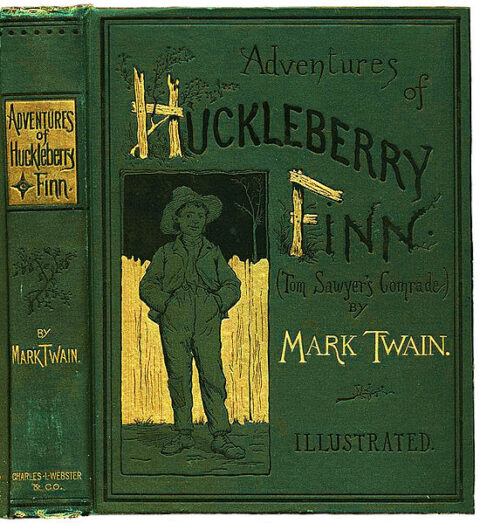Chris Bray plays the “for the sake of argument” game about the Bad Orange Man:
Let’s pretend. I’m going to accept a bunch of arguments that I don’t believe, for the sake of argument, and see where they take us. For the next two minutes, it’s all true: Donald Trump is a vicious racist, an unspeakably cruel man, and the figure whose ascension to power ends American democracy and turns the country into a fascist dictatorship. All of that is perfectly obvious, for the purposes of our exercise, and only a fool or a fellow traveling fascist could pretend not to see it.
Now: If all of that is true, why can’t America stop him? A thoroughly established constitutional republic, nearing its 250th year, with a deep well of legal and political tradition and thoroughly entrenched institutions, can’t stop a vulgar Nazi thug, who keeps winning and advancing. Right? Distinguished statesmen like Joe Biden and Jerrold Nadler can’t hold the line against the death of the republic, despite their decades of accumulated wisdom. This is already making me feel like an idiot, but I’m committed.
The problem is that, if the prevailing “mainstream” argument about Donald Trump is true, it condemns all of the important political norms that Trump’s critics say they’re protecting. Immune systems that can’t stop a virulent infection are failed immune systems. If Trump is what Jamie Raskin and Adam Schiff and Liz Cheney say he is, then they’ve condemned … everything else. Everything else. The emergence of a Hitler figure, the implosion of the rule of law, the collapse of political institutions, and on and on: None of that happens in a healthy country.
So if you want to argue that this is what’s happening, you must argue that America is in a state of ruin. You have no choice. No Weimar republic, no Nazis. Failure comes from failure. Hitler figures don’t arise from healthy societies.
Turning well to my left, Christopher Hedges has been making this argument for years:
The parting gift, I expect, of the bankrupt liberalism of the Democratic Party will be a Christianized fascist state. The liberal class, a creature of corporate power, captive to the war industry and the security state, unable or unwilling to ameliorate the prolonged economic insecurity and misery of the working class, blinded by a self-righteous woke ideology that reeks of hypocrisy and disingenuousness and bereft of any political vision, is the bedrock on which the Christian fascists, who have coalesced in cult-like mobs around Donald Trump, have built their terrifying movement.
Taking off my Daily Kos hat, let’s reformulate. Donald Trump is an unusual political figure, and both his election to the presidency and his continued political importance are signs of an unusual moment. But outsider attacks on the supposed mainstream are not uncommon, and we have a long line of outsider figures who’ve played this role in various forms: William Jennings Bryan, Huey Long, George Wallace, Ross Perot. Thomas Jefferson attacked the Federalist mainstream, and the existence of the Republican Party grew from exhaustion with a broken center. A schoolhouse in Ripon was our Trump Tower, the place where people broke with the available choices. And then, you know, the Civil War, but still.
The ridiculousness of the current manufactured crisis is found precisely in the inability of existing institutions to fend off the challenge. To deliver the kind of sophisticated analysis that makes bartenders enjoy our conversations so much, it’s because our existing institutions suck. I roll my eyes at the “Orange Hitler” part, but I see the failed Weimar republic part that Trump’s critics (other than Hedges) often imply without noticing. The common refrain on social media in the face of institutional failure: “You want more Trump? This is how you get more Trump.” A healthy politics would already have seen off the moment, instead of deepening a completely unnecessary societal wildfire with a long series of increasingly insane overreactions: WELL LET’S ARREST HIM AND IMPRISON SOME OF HIS SUPPORTERS AND THROW HIM OFF THE BALLOT THAT SHOULD PRODUCE CALM AND RESTORE ORDER.
Flatly, if you think Trump is horrible, it’s time to think about where he comes from and why he isn’t going away quietly.






